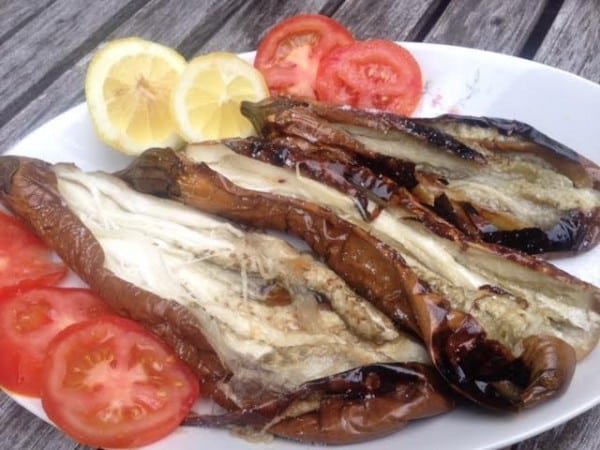Embracing the Flavors of Home: The Delightful Tale of Poqui Poqui
Nestled within the vibrant tapestry of Filipino cuisine lies a dish that embodies simplicity yet bursts with robust flavors—the Poqui Poqui. This beloved delicacy hails from the picturesque province of Ilocos in the Philippines, known not only for its breathtaking landscapes but also for its rich culinary heritage.
What makes Poqui Poqui so special? Imagine the harmonious blend of charred eggplant, sautéed with tomatoes, onions, and garlic, generously seasoned with salt and pepper. The result? A dish that tantalizes taste buds and evokes a sense of nostalgia for those who have had the pleasure of savoring its exquisite taste.
Recipe for Poqui Poqui
Ingredients:
2 large eggplants
2 medium-sized tomatoes, diced
1 onion, chopped 4
cloves of garlic, minced
Salt and pepper to taste
Cooking oil
Optional: chili peppers for added spice
Steps:
Char the eggplants over an open flame or under a broiler until the skin is completely charred and the flesh becomes tender. Let them cool before peeling off the skin. Once peeled, roughly chop the eggplant flesh and set aside.
In a pan, heat oil over medium heat. Sauté garlic and onions until fragrant and translucent.
Add the diced tomatoes and cook until they soften.
Toss in the chopped eggplant and mix well with the other ingredients.
Season generously with salt and pepper. Add chili peppers if desired for a spicy kick.
Cook for a few minutes until the flavors meld together, stirring occasionally.
Serve hot and relish the flavors of Poqui Poqui!
Special Tip: For a smokier flavor, you can grill the eggplants instead of charring them over an open flame.
The origins of Poqui Poqui can be traced back to the hearty kitchens of Ilocano households. This dish, with its humble ingredients, reflects the resourcefulness of the locals in creating a flavorful meal from readily available produce. Legend has it that the name "Poqui Poqui" was derived from the Ilocano term "pukpuk" which means "to mash" or "to mix." This perfectly encapsulates the essence of the dish, where the eggplant is mashed or mixed with other ingredients to create a delightful medley of flavors. Moreover, the dish's history intertwines with the agricultural abundance of Ilocos, where eggplants thrive in the region's fertile soil. The simplicity of the recipe highlights the local philosophy of celebrating the natural flavors of fresh produce.
Personal Experience:
My journey with Poqui Poqui began during a visit to Ilocos, where I had the opportunity to taste this delectable dish prepared by a local family. The warmth of their hospitality was matched only by the flavors dancing on my palate as I indulged in this culinary masterpiece. As I savored each bite, I couldn't help but admire the way Poqui Poqui encapsulates the essence of Filipino cuisine—uncomplicated yet brimming with layers of taste that leave an indelible mark on one's memory. It was a delightful experience that sparked my fascination with exploring the stories behind traditional Filipino dishes.
In essence, Poqui Poqui embodies the heart and soul of Filipino cuisine, celebrating simplicity and the natural bounty of the land. Its flavors are not just a treat for the taste buds but also a gateway to understanding the cultural richness of the Philippines, particularly the culinary traditions of Ilocos. I encourage you to embark on your culinary adventure and recreate the magic of Poqui Poqui in your kitchen. Let its flavors transport you to the picturesque landscapes of Ilocos and embrace the joy of savoring a dish that speaks volumes about Filipino culinary heritage. Whether you're a food enthusiast, a tourist eager to explore Filipino delicacies, or simply someone looking for a new culinary experience, Poqui Poqui is sure to captivate your senses and leave you craving for more.

